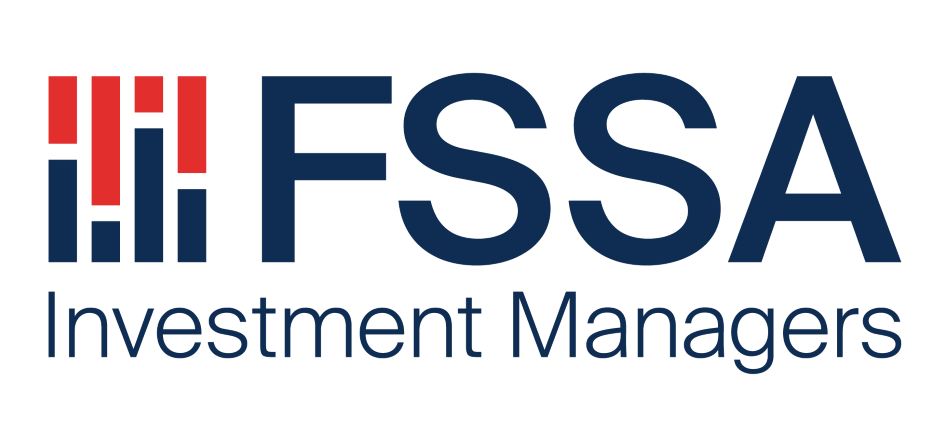
Solara eclipse
In our team, mistakes are teachable moments to be shared and learnt from.
Thankfully, for us and our clients, in our history of investing in India we have managed to avoid the big ones. There was one recent mistake which made us feel rather foolish, but once again, it has taught us many lessons and has been a humbling experience. It is in that spirit that we thought it would be interesting to share our journey with a company that has now earned the dubious distinction of being the single largest detractor from the strategy’s performance over the past five years: Solara Active Pharma.1
The story starts almost three years ago, in early 2021, when “China + 1” was the new buzzphrase following the pandemic-related lockdowns. Supply chains were being reconfigured globally and Indian manufacturers were seemingly well placed to benefit, particularly in the chemicals industry. Demand was high and companies were reporting high margins. We had been tracking several Indian chemical manufacturers for years, but valuations were rather unattractive to start with and got more ridiculous as we watched. We came quite close to investing in a couple of them in 2018-19 and there was perhaps some frustration creeping in about having “missed” some opportunities. So, when we came across what we thought was a decent franchise, backed by an entrepreneur with a good track record, with high growth prospects and trading on fair valuations (around 20x price-to-earnings back then), we got excited. In hindsight, this was quite unfortunate.
Our initial analysis
Solara Active Pharma was carved out of two companies, Strides Pharma and Sequent Scientific, in 2018. The idea behind it was sound – to create an independent, global active pharmaceutical ingredient (API) platform in an industry where most API manufacturers also make formulations or finished products (and are thus often conflicted with their own customers). We drew parallels with Divis Labs, or more adventurously with Taiwan Semiconductor Manufacturing Co (TSMC) in Taiwan. The companies in question were founded by Arun Kumar, who had built considerable shareholder value over a 30-year period. His track record of value creation, whilst good, had some elements of financial engineering and opportunistic deal-making. However, there had not been any instances of minority shareholder abuse in all these years (in fact, the total shareholder return generated by his companies during the 2004 to 2021 period was over 20% CAGR,2 higher than peers such as Dr. Reddy’s, Cipla or Lupin).
Even so, our initial analysis of the investment case was lukewarm, with the conclusion that we should wait for a better price. Apart from the view that the founder was too market-savvy for our liking, we also picked up on other risks. The business had been demerged recently and there were only three years of financial history. There was significant product concentration (in ibuprofen API) and API prices were at a high (demand tightness owing to China’s lockdowns was mistaken as a structural shift that would aid prices). Further, in April 2021 Solara announced an all-stock acquisition of another API manufacturer called Aurore Life Sciences, in which Mr Kumar had a minority shareholding. There was the risk of US Food & Drug Administration (FDA) approvals, amplified by the fact that the company had recently doubled its capacity and was awaiting approvals for that. On the back of our report and armed with questions on the strength of the franchise as well as its governance, we met with the then CEO, Mr Bharat Sesha, and followed that up with a meeting with Mr Kumar himself.
These meetings were constructive and our questions and concerns were laid to rest. The optimism emanating from the founder and his team about this business was palpable. In addition during this period, one of the most admired (and successful) CEOs in India, Aditya Puri, joined the board of Stelis Biopharma, another of Mr Kumar’s businesses. We, of course, have known and backed Mr Puri for much of his stint at HDFC Bank. That he had chosen to associate himself with Mr Kumar and his group was a big endorsement of quality, in our view. What is more, within a few months of our conversation, in August 2021 Mr Puri was appointed chairman of Solara itself – an outcome that further reinforced our belief that we had found a well-governed business that was capable of compounding away for years to come.
Becoming shareholders
As a result, we were happy to become sizeable shareholders of this as yet unproven small-cap company – something we have done many times before and on most occasions quite successfully. However, with Solara, things started going horribly wrong soon afterwards!
The first inkling that something was wrong was when the company reported its quarterly results in December 2021. This is what happened:
- Sales were down by 75% which led to a loss at the EBITDA3 level – a far cry from the high growth we had come to expect. Demand had waned for some of their key products (which had been driven higher during Covid) and while waiting for US FDA approvals for its new facilities, the management had stuffed the channel in some emerging markets. In some cases, they were now competing with their own distributors to clear inventory.
- The board took significant steps, including letting go of the professional CEO and CFO who were responsible for the poor decisions. The founder of Aurore, the business that was being merged with Solara, was appointed the new CEO.
- A month later, the board announced that after reviewing the Aurore acquisition, they had decided to cancel it. The business was dependent on drugs that were highly in demand during the Covid period and had subsequently fallen below expectations. The new CEO, who was the founder of Aurore, also resigned.
As one might imagine, the disruption in operations, as well as the management changes, suggested that the business was in a state of chaos. We engaged on a number of occasions with the founder and key board members who detailed the corrective actions being taken to fix the issues. The board chose to bring back the CEO and CFO team who had been in charge of the business prior to its demerger, to turn around the situation. We had the chance to speak with them after they joined and were hopeful about their ability to fix things. Thus encouraged, we chose to add slightly to our shareholding in the company, something we would not otherwise do in such situations.
Monitoring and engagement
Over the next year or so, the management stabilised the business to a large degree although there is still a fair distance to go before we can breathe more easily. The quarterly sales run-rate is now similar to what it was before the crisis. Margins are trending back up as well (gross margins are healthy at around 45%). The losses owing to the underutilised capacity have been reduced. US FDA approvals are now in place for some facilities, which should mean reasonable growth in the near term. For now, the leverage is no longer life-threatening, although the balance sheet could do with some equity infusion.
With the ship stabilised, the board has also been successful in finding suitable successors for the interim CEO and CFO team. A new CEO, Poorvank Purohit, has taken over the reins and, having had the opportunity to interact with him, we believe he is quietly optimistic about the company’s future. However, just as we thought that things were finally settling down from a team and people perspective, the company then announced that Mr Puri and another board director had resigned! We have continued to engage with the company on this and whilst we are encouraged by the ongoing operational improvements, it does leave us in a bit of a quandary about who we can rely on to protect our interests.
As such, the bottom line is that our clients have suffered a more than 70% drop in the value of this investment. In doing so, this somewhat small position (it was never more than 2% of the portfolio), has become the biggest detractor from performance in recent history. This has, unsurprisingly, triggered a significant amount of introspection on our part. How could we have acted differently? Where did we go wrong?
Lessons learned
In our view, we think that the first mistake was perhaps in not defining our circle of competence tightly enough. If we analyse our performance over the past 10 years or so, it is clear that we have made more mistakes with companies in the healthcare/pharmaceutical industry than any other. This knowledge should have made us doubly cautious. Maybe we should have avoided the sector altogether.
The second thing we have wondered, when analysing this episode, is whether the lack of face-to-face meetings had a role to play. With travel bans in place, all the key decisions in our journey with Solara were made through virtual interactions. Would our team have picked up valuable information if we had had the opportunity to meet people on-site in their premises? For the most part, virtual meetings are a decent cost-effective replacement to physical travel and we have used the technology like everyone else in the past few years. But, in making assessments of new companies, we cannot help but feel a certain absence.
Thirdly, we wonder if we were guilty of trying too hard in this case. There were certainly some amber flags raised, and we generally have treaded with caution when we have seen similar minefields. Was it a case of feeling left out, we ask ourselves? Maybe!
Finally, we should have been more mindful of the fact that the entire API industry in India was reporting blockbuster results in 2021. In retrospect, we got carried away by what was clearly a cyclical high and invested at exactly the wrong time. The market is truly a great teacher – this has been a Solara eclipse for us and the scars will remain for years to come.
Here's hoping to a decade of no further big mistakes!
Source: Company data retrieved from company annual reports or other such investor reports. Financial metrics and valuations are from FactSet and Bloomberg. As at 17 October 2023 or otherwise noted.
Footnotes
1 Largest detractor from performance in the Scottish Oriental Smaller Companies Trust, over five years to 30 September 2023
2 Compound annual growth rate
3 Earnings before interest, taxation, depreciation and amortisation
Risk factors
Capital at risk. The value of investments and any income from them may go down as well as up and are not guaranteed. Investors may get back significantly less than the original amount invested.
Important Information
This document has been prepared for informational purposes only and is only intended to provide a summary of the subject matter covered and does not purport to be comprehensive. The views expressed are the views of the writer at the time of issue and may change over time. It does not constitute investment advice and/or a recommendation and should not be used as the basis of any investment decision.
This document is not an offer document and does not constitute an offer or invitation or investment recommendation to distribute or purchase securities, shares, units or other interests or to enter into an investment agreement. No person should rely on the content and/or act on the basis of any material contained in this document.
Net Asset Value (NAV) performance is not the same as share price performance and shareholders may realise returns that are lower or higher than NAV performance.
This document is confidential and must not be copied, reproduced, circulated or transmitted, in whole or in part, and in any form or by any means without our prior written consent. The information contained within this document has been obtained from sources that we believe to be reliable and accurate at the time of issue but no representation or warranty, express or implied, is made as to the fairness, accuracy, or completeness of the information. We do not accept any liability whatsoever for any loss arising directly or indirectly from any use of this information.
References to "we" or "us" are references to First Sentier Group. In the UK, issued by First Sentier Investors (UK) Funds Limited which is authorised and regulated by the Financial Conduct Authority (registration number 143359). Registered office Finsbury Circus House, 15 Finsbury Circus, London, EC2M 7EB number 2294743.
Scottish Oriental Smaller Companies Trust plc ("Company") is an investment trust, incorporated in Scotland with registered number SC0156108, whose shares have been admitted to the Official List of the London Stock Exchange plc. The Company is an alternative investment fund and has appointed First Sentier Investors (UK) Funds Limited as the alternative investment fund manager for the Company. Further information is available from Client Services, First Sentier Group, Finsbury Circus House, 15 Finsbury Circus, London, EC2M 7EB or by telephoning 0800 587 4141 between 9am and 5pm Monday to Friday or by visiting www.scottishoriental.com. Telephone calls with First Sentier Group may be recorded.
First Sentier Group entities referred to in this document are part of First Sentier Group, a member of MUFG, a global financial group. First Sentier Group includes a number of entities in different jurisdictions. MUFG and its subsidiaries do not guarantee the performance of any investment or entity referred to in this document or the repayment of capital. Any investments referred to are not deposits or other liabilities of MUFG or its subsidiaries, and are subject to investment risk including loss of income and capital invested.
© First Sentier Group


